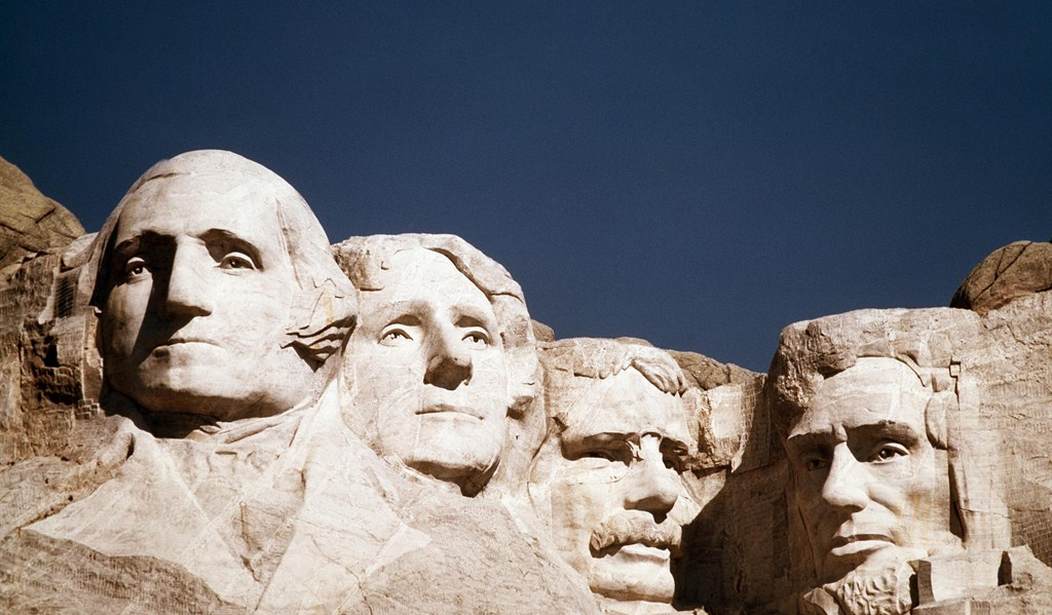As we celebrate our nation’s birthday through the signing of the document that said all men are endowed by their Creator with certain unalienable rights, let us remember that patriotism is a virtue and a moral necessity for this republic to survive and thrive.
In the Catholic Church, patriotism was always considered not only a praiseworthy but even a necessary virtue. Other Christian denominations, of course, also hold up patriotism as virtuous. Loyalty to one’s rulers and country is also a feature of the Jewish tradition. The Founders of America were the inheritors of this Judeo-Christian tradition—and with a country as unique and idealistic as America, patriotism very naturally became considered both a moral and a civic obligation.
It is key to note that patriotism does not imply blind enthusiasm for every action of one’s government or leaders; quite the opposite, in fact. After all, George Washington warned us to “guard against the impostures of pretended patriotism.” To deny the times America has often fallen from her own ideals would be dangerous and wrong, because we cannot solve problems and atone for sins if we are not honest.
But in America we must be careful to note that when Americans make serious mistakes, it is because they have failed to live up to our own principles, which glorify liberty and justice for all and guarantee to every man the rights of life, liberty, and the pursuit of happiness. That is where patriotism is so different from the vitriol of the radical left against all the greatness that has also been achieved by our nation.
America has produced criminals and traitors, but also many heroes. From Trenton to Gettysburg, from Yorktown to New Orleans, from Vicksburg to Belleau Wood, from Iwo Jima to the Chosin Reservoir, and from Normandy to Saigon and Afghanistan, America’s armed forces have provided millions of examples of bravery and self-sacrifice. And here at home America’s thinkers, activists, political leaders, artists, writers, preachers, priests, and inventors give many examples of greatness.
We should be proud to be Americans. Who would not be proud to follow in the steps of George Washington, Alexander Hamilton, James Armistead Lafayette, Abraham Lincoln, Frederick Douglass, U.S. Grant, Louisa May Alcott, Henry Wadsworth Longfellow, Booker T. Washington, Albert Bierstadt, George Patton, Ronald Reagan, Rush Limbaugh, and so many more?
But following in the steps of those giants demands also a vow to solve the problems besetting America and to work energetically to preserve our liberties. American individualism does not mean the right to be left alone or the right to do whatever one wants. Rather, American individualism means the obligation for each citizen to become a hero. No matter what our job or status in society is, America needs each and every one of us to be involved in the public square or else our republic could be destroyed by our internal and external enemies.
Adopting the words Jesus is said to have spoken to St. Peter in a vision when Peter tried to escape martyrdom in Rome, Fulton Sheen once asked on TV in the 1960s, “Quo Vadis America — America, where are you going?” Where are we going? Sheen said that love of God, neighbor, and country are all connected and co-dependent, that without one the others die too. Now as patriotism has turned to hatred for America, we also see the rise not just of atheism but of hatred for religion, not to mention more violence and anger and broken relationships.
How right Sheen was! Unless we have a strong and self-sacrificing love for God, neighbor, and country, we cannot have love for any one one of those three. That is why patriotism is a virtue. Frederick Douglass is often quoted as saying about the Fourth of July that it was no day for slaves to celebrate: “What to the slave is the Fourth of July?” But we forget the context of Douglass’s quote, the words of his that preceded and followed the harsh condemnation of slavery co-existing with American ideals. The full speech demonstrates that he wanted not to end the celebration of Independence Day, but to claim a share in it for every American, regardless of race or ethnicity:
The 4th of July is the first great fact in your nation’s history—the very ring-bolt in the chain of your yet undeveloped destiny. Pride and patriotism, not less than gratitude, prompt you to celebrate and to hold it in perpetual remembrance. I have said that the Declaration of Independence is the ring-bolt to the chain of your nation’s destiny; so, indeed, I regard it. The principles contained in that instrument are saving principles. Stand by those principles, be true to them on all occasions, in all places, against all foes, and whatever cost…
Fellow-citizens! there is no matter in respect to which, the people of the North have allowed themselves to be so ruinously imposed upon, as that of the pro-slavery character of the Constitution. In that instrument I hold there is neither warrant, license, nor sanction of the hateful thing; but, interpreted as it ought to be interpreted, the Constitution is a GLORIOUS LIBERTY DOCUMENT.
Amen to that. In the tradition of honest patriotism demonstrated by people such as Douglass, let us practice the virtue of patriotism. Let us be clear-sighted about the faults and crimes of our leaders and citizens, but let us also declare to the world that ours is a great nation, a nation, as Lincoln said, conceived in liberty and dedicated to the proposition that all men are created equal.
Patriotism is a virtue sadly lacking in our modern America, but we will never save this nation from her current crises and enemies without it.










Join the conversation as a VIP Member